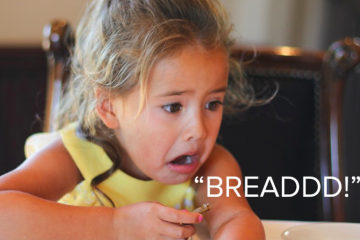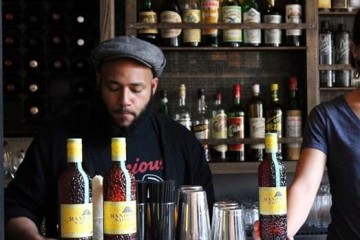Tipping While Black – The Struggles of a Black Barman
I remember watching my favorite TV show, Louis, and there was a scene where Louis was at The Cellar and he asked a server how her night was going. She says that she has two tables full of Black people, so she’s working for free. Louis says her comment was racist. She argues that her five years of experience prove otherwise. He then tells the Black host what just happened and she honestly responds, “Are you nuts? N****s don’t tip. Everyone knows that.” Louis stood there perplexed. His cultural sensitivity, his rejection of stereotypes, his politically correct childlike naïveté had all been challenged. I will tell you that as a Black hospitality industry worker I carry the weight of this stereotype/reality firmly on my shoulders. I’ve dealt with it personally, heard stories from others from which I’ve felt apologetic and when I’m out on my own I overcompensate. Maybe this is a Black guilt. Let us discuss.
I believe some of this comes from the way my dad raised me, which was to never confirm “their” stereotypes and that when I walk out of the house I represent myself, my family and ‘us’, so I tend to internalize. I can’t act like this tipping issue is a complete fallacy. This wouldn’t be a running theme if it held no truth, but this is a burden I’ll always deal with, whether I’m working or I’m out. Now, regardless of whether or not prejudices/profiling hold true, our job in this industry is to set all of those preconceived notions aside and, regardless of experience, it is our duty to treat every guest with respect. One of the main tenets of our profession is to treat all customers as individuals and do so with dignity and for them to leave happy, feeling that they were taken care of. You never know that person’s story and I wouldn’t want subpar service because of an experience someone had with someone else.
Is non-tipping a Black thing? Does it have a history? Is this something that arose post Jim Crow as a response to previously not having the right to be served? Sometimes I wish I could say this stems from a history of being the first American non-paid service class. This isn’t the case and I don’t know if I want to give modern day non-tipping a crutch of that much integrity. I’ve grown to believe this is more of a matter of culture – culture meaning accepted societal rules, language and rituals. I don’t think anyone from certain socioeconomic levels that don’t allow for excess money, or those not accustomed to the rituals of going out on the town, are traditionally great tippers. For people raised in an environment where pizza and takeout Chinese food are treats, when you get older tipping is just an optional anything ‘extra’ with no associative figure, just maybe a nebulous good or bad. Good to someone could mean $10 on $100. $20-$25 may not even make sense to some, it would almost seem gratuitous. In my adulthood, I wasn’t in that social world where the language of tip percentage was so ubiquitous. It really wasn’t until I started working in this industry that I learned percentages, 15-18-20%. Before then I was oblivious. I could have tipped poorly and been unaware.
Many of the articles I read about how to tip come from an industry worker or someone highly entrenched in the food/social world. I tend to hear more about groups of people who don’t tip well than those who do. Many times foreign tourists aren’t the best tippers, regardless of socioeconomic class. There’s also the case of the wealthy person who doesn’t tip at all, and then of course there is the culture of people who don’t ‘believe’ in tipping altogether (which is another contentious conversation in itself). Aside from these different cultures that we can somewhat explain, let us not forget the culture that transcends race…just being a cheap ass.
I tip because I’m a part of this industry, but more importantly I tip because I’m Black. It’s a lose-lose at times because I’ll have the urgent need to make sure that I leave a good impression, like I’m tipping on behalf of all Black people, but if someone has held on to a stereotype so deeply that they silently don’t afford me much respect, then they aren’t worth all of my consideration and I’d be, in turn, doing my own self a great disservice. Although I know this, it will always be a conflict of mine.









